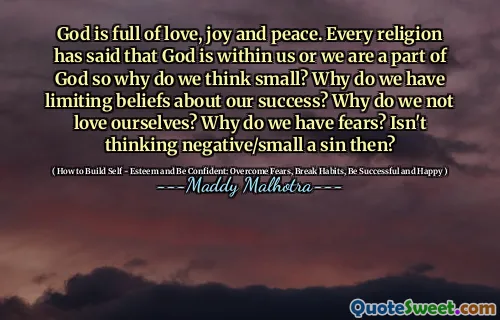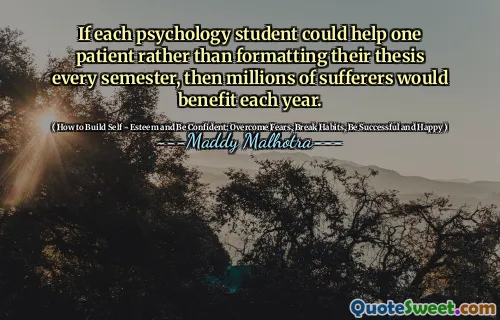
God is full of love, joy and peace. Every religion has said that God is within us or we are a part of God so why do we think small? Why do we have limiting beliefs about our success? Why do we not love ourselves? Why do we have fears? Isn't thinking negative/small a sin then?
This quote powerfully challenges us to reconsider the roots of our self-imposed limitations and fears. It suggests that since God embodies love, joy, and peace and dwells within us, recognizing this divine presence should inspire us to embrace boundless possibilities instead of constraining beliefs. When we accept that the divine is an intrinsic part of our being, it becomes difficult to justify negativity or doubt. This prompts us to question why so often we harbor fears or fail to love ourselves fully. The internalization of limiting beliefs is portrayed not merely as a personal failing, but as a contradiction to the spiritual unity we share with divinity. This perspective aligns closely with the themes in "How to Build Self - Esteem and Be Confident: Overcome Fears, Break Habits, Be Successful and Happy," underlining that transforming our mindset from one of scarcity to one of abundance and self-belief is essential for growth and happiness. The quote subtly imposes a moral dimension, suggesting that negative thinking is almost a spiritual misstep—something akin to a sin—because it denies the expansive and loving nature of God within us. As such, it encourages deep introspection: cultivating self-love, facing fears head-on, and adopting positivity are not only avenues to success and happiness but acts of honoring our divine essence. Embracing these ideas can help foster resilience, empower our confidence, and align our inner self with the peaceful and joyful attributes attributed to God.





